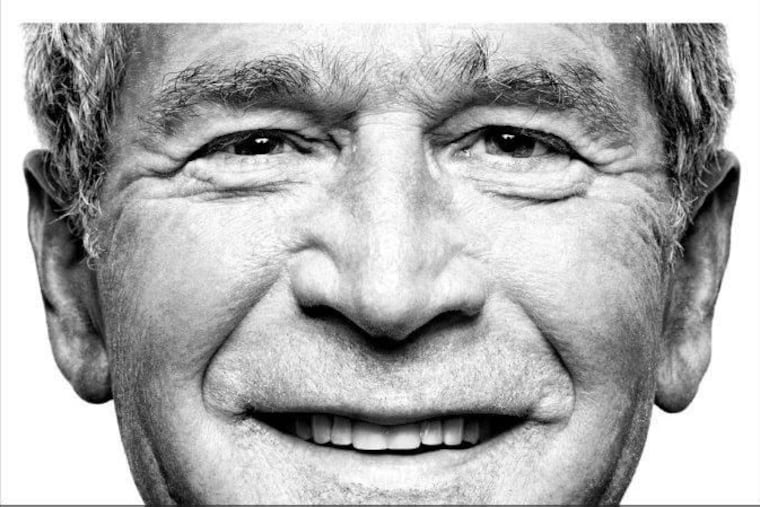In 'Bush,' a scholar pans a presidency
One of the most memorable jokes of the 2015 White House Correspondents Dinner was President Obama's crack that "I think Dick Cheney was the worst president of all time."

Bush
By Jean
Edward Smith
Simon & Schuster.
832 pp. $35
nolead ends nolead begins
Reviewed by
Paul Jablow
nolead ends One of the most memorable jokes of the 2015 White House Correspondents Dinner was President Obama's crack that "I think Dick Cheney was the worst president of all time."
It might have brought down the house, but Jean Edward Smith thinks Obama had it wrong.
Especially where the Iraq war was concerned, the author says, George W. Bush was very much his own man, on a mission from God to bring democracy to the Mideast at almost any cost. Far from being Bush's Rasputin, Cheney was just cheerfully riding shotgun.
Smith describes the decision to invade Iraq in 2003 as "perhaps the worst foreign policy decision ever made by a president."
"Bush," Smith says, "drew on his deep religious conviction that he was an agent of good in a world of evil, fundamentally oversimplifying a complex world." He sees the Iraq invasion as the keystone of a presidency that left the nation vastly weakened economically and morally. He is particularly critical of the administration's conduct of the "war on terror" after 9/11, saying Bush and his compliant legal staff shredded the Constitution with little to show for it.
Smith - a professor of political science at Marshall University in Huntington, W.Va., and biographer of Presidents Franklin D. Roosevelt, Ulysses S. Grant, and Dwight D. Eisenhower - says some of Bush's failures as president were, ironically, rooted in his success as a two-term governor of Texas. That office, the weakest of its kind in the country, left him, Smith says, unaware of how much he needed to raise his game in the White House.
Smith does praise Bush in several areas, mainly his support for the fight against AIDS in Africa and his concern about unequal opportunities in public education. Bush's anti-AIDS initiative is credited with saving more than 1.1 million lives in its first three years.
Smith sees Bush as an essentially decent man. He absolves Bush of serious blame for the 2008 financial crisis, saying that if Bush was fooled by the subprime mortgage meltdown, so were experts who should have given him better advice. When Bush had to act, he did.
But the dominant theme of his presidency, in Smith's view, was a toxic blend of arrogance and incuriosity, summed up by this statement: "I'm the commander. I don't need to explain. That's the interesting thing about being president. I don't feel like I owe anybody an explanation."
Paul Jablow is a former Inquirer editor and writer.